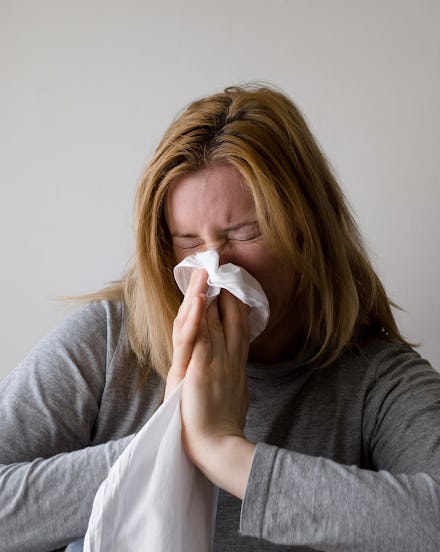What Are Boogers? How They Form and Why You Should Occasionally Eat Them

Whether it's allergy season or not, warm or frigid outside and regardless of your age, boogers can clog up your nose and impede your breathing. There are many ways of removing boogers from your nose, whether it's blowing them out into a tissue, launching that "bat in the cave" snot rocket style or taking a more hands on approach by digging in there with your finger. However, scientists say once you get the booger out of your nose, you might want to stick it back in your mouth.
Read more: Your Birth Month May Predict the Kind of Allergies That Will Ruin Your Life Each Spring
What are boogers?
In short: Boogers are the product of all the crap that you breathe in. Your epithelium, or lining of your nose and sinus, produces mucus in order to help your sense of smell. More importantly, the mucus you produce helps your cilia, or little hairs in your nose, filter contaminates and pollutants you breathe from entering your lungs.
Most of the time, you simply swallow the mucus-trapped dust, pollen, and what have you — other times, they remain in your nose, drying out, clumping together and compounding with more dust and debris. That's when you might have the impulse to do this:
OK, fine... but why should I eat my boogers again?
In the same vein as natural childbirth being healthier due to the mother/child transfer of microbes, boogers may actually boost your immune system due to "hygiene hypothesis." Scott Napper, a biochemist from the University of Saskatchewan in Canada, theorizes that eating mucus-soaked boogers can help introduce beneficial pathogens to kids, thereby warding off allergies, asthma and other autoimmune diseases that manifest due to a lack of pathogens.
With that said, whether you want to consume boogers is your prerogative. Just try to keep your nose booger free, lest you get a whiff of pepper and then...